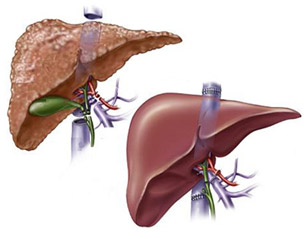How are liver diseases diagnosed in children?
Children may experience a number of liver diseases, including Acute liver failure, Alpha-1-antitrypsin deficiency, and biliary atresia. A proper diagnosis of their condition has to be performed to determine whether they need acute liver failure treatment or something else. The diagnosis of liver disease is done with similar techniques used in adults, including:
- Physical examination: A pediatric gastroenterologist or liver specialist might perform a comprehensive physical examination to determine whether the symptom experienced by the patients are linked with liver disease, and advise further testing accordingly.
- Imaging tests: Diverse types of imaging techniques like CT scan and ultrasound aid in diagnosing liver disease.
- Blood tests: Typically, a complete liver function test or liver panel test is done for the diagnosis. These tests involve collecting and analyzing the blood sample of the patient.
- Based on the results of these routine tests, the pediatric liver specialist might also recommend further testing for liver-specific metabolic tests.
- Urine tests: Urine tests are usually advised to determine the amount of bilirubin in the urine of the patient.
The treatment approach for the patient would depend on the diagnosis. Severe procedures like Liver Transplant in Children might have to be done, if the patient suffers from liver failure or biliary atresia. Liver transplant is typically considered to be the last resort treatment. It is only carried out when other invasive and non-invasive treatment measures fail to provide adequate results. Owing to the high severity of the surgery, only the Best doctor for liver in Delhi should be trusted to carry out a liver transplant.

Comments
Post a Comment